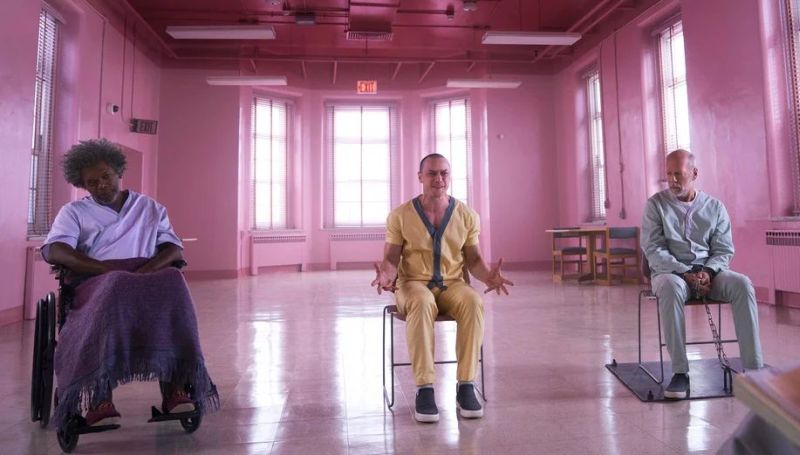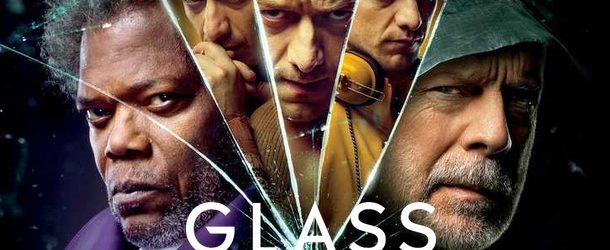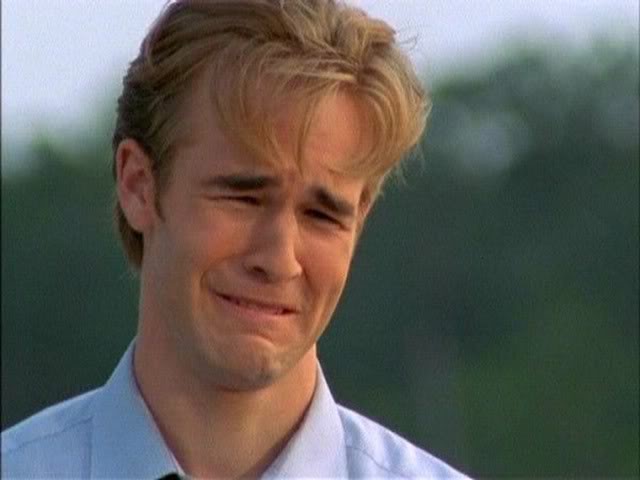Spoiler alert. Yes, I’m starting my review with a spoiler alert.
If you didn’t see 2017’s Split, you may not know that it’s a secret sequel to 2000’s Unbreakable. If you haven’t seen Unbreakable, then shame on you.
Stop reading now and go watch both. I’ll wait…
Unbreakable is the grounded origin story of David Dunn (Bruce Willis) and his interaction with a mysterious friend named Elijah (Samuel L. Jackson) who believes that David is an actual superhero and may not even know it. Split is James McAvoy’s master-craft acting class as he plays one of 23 different personalities and awaits the arrival of The Beast.
Now with Glass, we see these three characters combine into the culmination of the series in what is meant to be the showdown that many comic books finish with.

These main characters are joined by returning cast members Anya Taylor-Joy (Split), Spencer Treat Clark (Unbreakable), and Charlayne Woodard (Unbreakable). Sarah Paulson joins the cast as Dr. Ellie Staple, a psychologist who tries to determine who these men are and if they are actually just delusional. In many ways, she is the central character and possibly gets the most screen time.
Okay, let’s get this out of the way. This is not the movie you’re expecting. It may not be the movie you’re wanting. And it’s not the movie that should complete this surprise trilogy.
Though in many ways, it’s a perfect representation of the title – Glass (just in case you forgot). Unbreakable tells the story of David as he discovers what his potential really is. Split shows the fractured personalities that make up Kevin Wendell Crumb and this disorder leads to chilling results. Each of these characters got their own movies. Glass is a methodical study in comic books and realizing fictional tropes but in the real world. This was Mr. Glass’s intention all along. Like any puzzle, you can’t view the whole thing until it’s finally complete. This is, by far, the most cerebral movie in the trilogy and represents Mr. Glass and his obsessions well.
I would never dare spoil the ending to any movie, nonetheless a Shyamalan movie. There are some really interesting (in a bad way) choices made that ruin the series’ chances at being one of the great trilogies. These controversial plot decisions follow a second act that is quite repetitive, so a viewer’s patience will already be tested.
Sadly, far too little is seen of Bruce Willis and Samuel L. Jackson for long sections. Considering those two represent Shyamalan’s greatest achievement in filmmaking, it gets a bit annoying that the spotlight goes instead to Sarah Paulson and James McAvoy. He is once again great and gets even more personalities to play with. However, it crosses the line over a fine balance and becomes a showcase of acting rather than moving the plot along.
There are several highlights, especially in the first act. The deliberate pace leads to a surprising showdown in the third act that is strangely satisfying as well. Yet, Shyamalan couldn’t help himself by trying to do too much with the mythology.
I’m going to see Glass again in the theaters because my brain refuses to settle on a grade. This movie is smart and foolish at the same time. I need to see it play out now knowing the whole story.
Glass is far from the worst Shyamalan movie. In fact, it feels wrong to even put it in a negative Shyamalan category, but as a closer to what Unbreakable started, it’s a disappointment. One single (fan fiction) moment at the end could have brought this up a full grade. C+









Comments are closed.